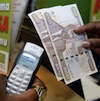Various articles on the power of the mobile phone in emerging markets
What next after the Mobile revolution in Kenya?
by John Karanja
MPESA will be on its own a major driver of the economic expansion of the Kenyan economy and best of all it will take a bottom up approach because it will empower the mama mboga (woman grocer) by allowing her to manage her finances efficiently.
[Now] MPESA needs to move from a payment system to a payment gateway: Safaricom should develop MPESA into a platform where other software developers can build applications on top of the platform an thereby increase utility and reach of this technology.
(Make sure to check the embedded videos)
Nokia Life Tools – a life-changing service?
by James Beechinor-Collins
Recently we saw the release of a bunch of new entry level devices and alongside their launch in Indonesia, was the introduction of Nokia Life Tools for Indonesia. This follows an already successful launch in India and Africa and forms part of a rollout across select Asian and African countries. So does it make a difference? It would seem so, as our selection of videos below suggest. With over 50 per cent of the population in Indonesia reliant on agriculture to make a living, Nokia Life Tools brings a new level of control to them.
(Make sure to check the embedded videos)
Mythes et réalités des usages mobiles dans les pays en développement
[Myths and realities of mobile use in developing countries] – an article series in French
by Hubert Guillaud
Part 1 – Part 2 – Part 3
Bangladeshis rush to learn English by mobile
By Maija Palmer in London and Amy Kazmin in New Delhi for the Financial Times
More than 300,000 people in Bangladesh, one of Asia’s poorest but fastest-growing economies, have rushed to sign up to learn English over their mobile phones, threatening to swamp the service even before its official launch on Friday.
The project, which costs users less than the price of a cup of tea for each three-minute lesson, is being run by the BBC World Service Trust, the international charity arm of the broadcaster. Part of a UK government initiative to help develop English skills in Bangladesh, it marks the first time that mobile phones have been used as an educational tool on this scale.




